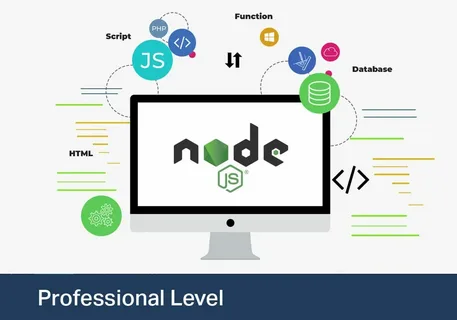Node.js has become one of the most popular frameworks for building scalable, high-performance web applications. With its non-blocking, event-driven architecture, Node.js is ideal for handling large amounts of data and high-traffic apps in real-time. This has led to a huge demand for Node.js developers, making it essential to understand how to hire the right talent. Below is a detailed guide to help you through the process of hiring expert Node.js developers.
1. Understanding Node.js and Its Ecosystem
Before you dive into hire node js developers, it’s important to have a clear understanding of Node.js, the ecosystem surrounding it, and the skill set you need. Node.js is a server-side platform built on Chrome’s V8 JavaScript engine. It allows developers to use JavaScript for server-side scripting, meaning they can run JavaScript on both the client and server sides. This makes development faster and more consistent, which is particularly useful for full-stack development.
The Node.js ecosystem is vast and includes many frameworks, libraries, and tools that enhance the development experience. Some common tools and technologies that Node.js developers should be familiar with include:
- Express.js: A minimal and flexible Node.js web application framework.
- Socket.IO: Enables real-time, bidirectional communication between web clients and servers.
- PM2: A production process manager for Node.js applications.
- Webpack and Babel: For building and transpiling JavaScript code.
- REST and GraphQL: Common API development paradigms used with Node.js.
2. Key Skills to Look For in a Node.js Developer
A top-tier Node.js developer should have a combination of technical skills, experience, and the ability to work effectively in a team. Here are some key qualifications to consider when hiring a Node.js expert:
a) Proficiency in JavaScript/TypeScript
Since Node.js is JavaScript-based, a deep understanding of JavaScript is essential. Many companies now also look for TypeScript proficiency, which is a strongly-typed superset of JavaScript, enabling developers to write more robust and maintainable code.
b) Experience with Asynchronous Programming
Node.js is heavily reliant on asynchronous programming due to its non-blocking I/O model. Candidates should be familiar with callbacks, promises, async/await, and event-driven architecture to ensure high scalability in your projects.
c) Familiarity with Databases
Node.js applications often interact with both SQL (e.g., PostgreSQL, MySQL) and NoSQL (e.g., MongoDB) databases. Experience in designing and optimizing database interactions is crucial, as a poorly designed database can become a bottleneck in performance.
d) API Development and Microservices
Developers should have experience in building RESTful APIs or working with GraphQL. Many Node.js applications are designed using microservices architecture, so familiarity with this design pattern and related tools (e.g., Docker, Kubernetes) is a plus.
e) Knowledge of Testing Frameworks
A good developer should be well-versed in automated testing using tools like Mocha, Chai, or Jest to ensure the reliability of the code. Test-driven development (TDD) and behavior-driven development (BDD) are highly recommended practices.
f) Security Best Practices
Node.js developers must be aware of common security vulnerabilities like SQL injection, cross-site scripting (XSS), and CSRF attacks. Familiarity with security tools and practices such as the OWASP guidelines will protect your application.
3. Steps to Hire the Right Node.js Developer
a) Define the Role and Requirements
First, assess your specific project needs. Are you developing a real-time application, an e-commerce platform, or a microservices-based solution? Do you need a front-end, back-end, or full-stack developer? Be explicit in your job description about the requirements for the role, such as:
- Full-time or contract.
- Remote or in-house.
- Level of experience (e.g., junior, mid-level, senior).
Specify the technology stack you use, the types of databases, frameworks, and any other relevant tools. This helps attract candidates who are a good fit for your environment.
b) Where to Find Node.js Developers
There are various channels through which you can find Node.js developers, including:
- Job Boards: Sites like Stack Overflow Jobs, We Work Remotely, and LinkedIn are popular places to advertise your job openings.
- Freelancer Platforms: For short-term or freelance work, platforms like Upwork, Toptal, or Freelancer can connect you with skilled Node.js developers.
- Open Source Communities: Developers active in open-source communities like GitHub or GitLab often have valuable experience, and you can evaluate their contributions to Node.js-related projects.
- Recruitment Agencies: If you’re looking for a high-level, specialized developer, consider partnering with a recruitment agency focused on tech talent.
c) Craft a Strong Interview Process
Technical Screening
Your technical screening should focus on assessing the candidate’s proficiency in Node.js, JavaScript, and related technologies. Some common steps include:
- Coding Tests: Use platforms like HackerRank, Codility, or LeetCode to create challenges related to Node.js fundamentals such as asynchronous code, database queries, and error handling.
- Code Review: Ask candidates to walk through an existing Node.js codebase or their own project, explaining their decision-making process. This gives you insights into their problem-solving approach and attention to detail.
Technical Interview
The interview should cover not just technical questions but also scenarios they might face on the job. Some questions you might ask:
- Explain how the event loop works in Node.js.
- How would you handle performance bottlenecks in a Node.js application?
- Can you describe a time when you optimized an API built on Node.js?
- What are the key differences between using promises and async/await in Node.js?
Cultural Fit and Soft Skills
A developer’s ability to communicate effectively and work within a team is crucial. Assess their problem-solving abilities, collaboration skills, and how they handle challenges or disagreements in a project.
d) Evaluate Real-World Experience
Look for candidates who have hands-on experience in projects that are similar to yours. Checking portfolios, GitHub repositories, or contributions to open-source projects is a great way to gauge practical experience. Consider asking for specific examples of complex problems they’ve solved in production environments, how they handled scaling issues, or their approach to refactoring legacy code.
e) Checking References and Soft Skills
Before making a final offer, always check the candidate’s references. It helps to gain feedback from past colleagues or managers on their work ethic, communication, and technical proficiency. Soft skills such as teamwork, adaptability, and accountability are critical in a collaborative development environment.
4. Retention Strategies for Node.js Developers
After hiring the right developer, retention is just as important. Skilled Node.js developers are in high demand, so offering a competitive salary, benefits, and career growth opportunities will help you retain them. Other retention strategies include:
- Offer Continuous Learning Opportunities: Encourage them to attend conferences, take courses, or obtain certifications.
- Provide Autonomy and Ownership: Let developers own projects and have a say in the decision-making process.
- Promote a Collaborative Environment: Foster a culture of open communication and teamwork, where developers can collaborate and grow together.
Conclusion
Hiring the right Node.js developer requires a deep understanding of the Node.js ecosystem, a structured hiring process, and a focus on both technical skills and cultural fit. By clearly defining your needs, conducting a thorough technical evaluation, and focusing on retention, you can bring top-tier talent to your team and ensure the success of your project.







